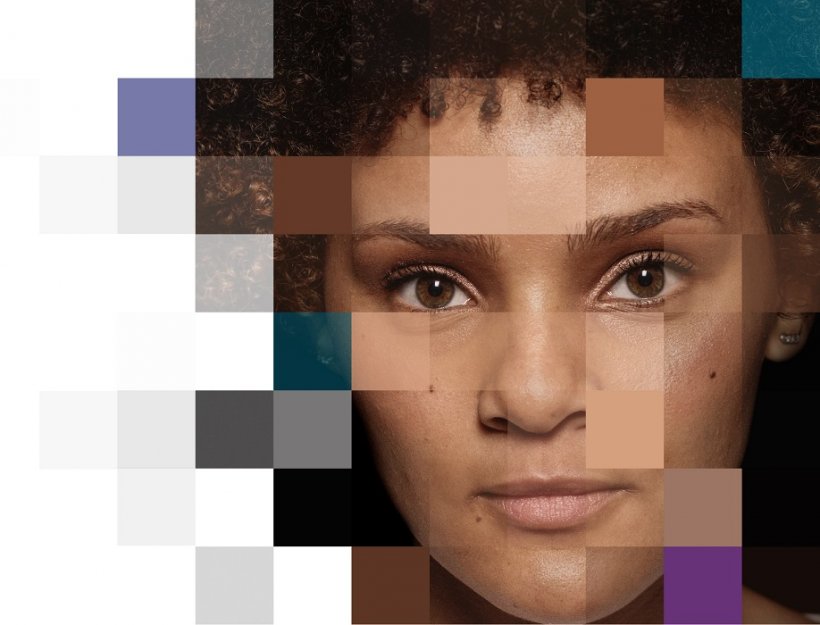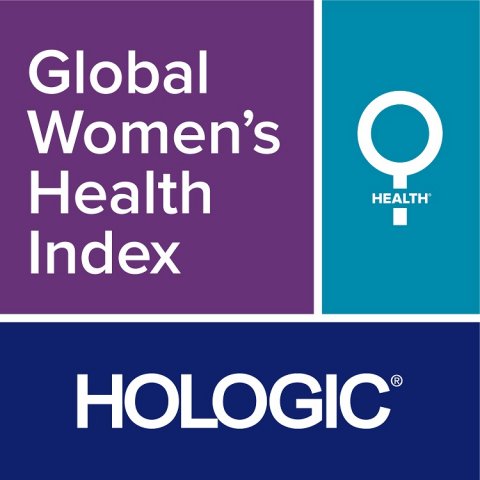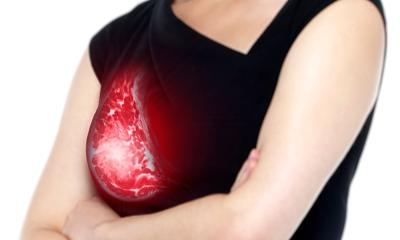
Source: Hologic
News • Roadmap for Improvement
Inaugural Global Women’s Health Index
Hologic, Inc. shared the findings from its inaugural Hologic Global Women’s Health Index, the world’s most comprehensive, globally comparative survey about women’s health.
Developed in partnership with leading analytics and advice firm Gallup, the Hologic Global Women’s Health Index is an unprecedented, in-depth examination of critical markers for women’s health, by country and territory, and over time. Its findings are based on the experiences of more than 60,000 women and girls from 116 countries and territories, captured in more than 140 languages. Conducted as part of the Gallup World Poll, which began in 2005, the Hologic Global Women’s Health Index represents the feelings and actions of approximately 2.5 billion women and girls.
Based on responses from the 120,000 total individuals surveyed, women’s health needs are not being met globally. The global score was 54 out of 100 on the Index, and no one country or territory scored more than 69. Country and territory rankings can be found here. Notably, 40% of those surveyed – equating to about a billion women and girls – said they had not talked to a healthcare professional in the last year, while approximately 60% – about 1.5 billion – were not tested for four common diseases that affect women’s health.
"We urge global healthcare and government leaders to use this data and the five dimensions to guide the development of actionable and measurable plans and investments that prioritize women’s health."
Steve MacMillan
“Women’s health is the cornerstone of families, communities, societies and economies,” said Steve MacMillan, Hologic’s Chairman, President and Chief Executive Officer. “As a leader in the early detection, diagnosis and treatment of women’s health issues, we know firsthand that measurement is the key to improvement. We saw a clear need for more robust, quality data to track and measure women’s health on a global level — particularly as COVID-19 has worsened longstanding healthcare disparities. The Hologic Global Women’s Health Index is the first global survey that uniquely draws from women’s perspectives to determine priorities.”
“In line with critical UN Sustainable Development Goals and the UN General Assembly theme of ‘Building Resilience Through Hope,’ we urge global healthcare and government leaders to use this data and the five dimensions to guide the development of actionable and measurable plans and investments that prioritize women’s health,” said MacMillan.
Covid-19
While the Hologic Global Women’s Health Index was initiated before COVID-19 affected the world, the pandemic and its effects on the already precarious state of women’s healthcare — including postponed or canceled preventive care examinations, increased poverty levels, and insufficient access to medical facilities and education — have created a more urgent need for world leaders and policymakers to prioritize women’s health.
“The COVID-19 pandemic has both exacerbated and shed light on longstanding gaps in access and quality of healthcare,” said Vipula Gandhi, Senior Managing Partner at Gallup. “The Index provides a baseline from which we can measure the state of women’s health globally. We hope this study will serve as a call to action for world leaders and policymakers as they navigate the global recovery.”
Country and territory rankings

In this first year of the Hologic Global Women’s Health Index, no single country or territory scored more than 69 out of 100. Generally, most countries and territories that lead the world on the Index also lead the world in how much of their wealth they invest back into their health systems, including Austria, Switzerland and Norway. Overall, while women in high-income countries and territories were only 17% of the women surveyed in the Index, they collectively have at least a seven-point lead on the Index over all other women globally.
Conversely, the countries and territories with the lowest scores on the Hologic Global Women’s Health Index all share high income inequality and weak or destabilized infrastructure for healthcare. The countries and territories with the lowest scores on the Index are a mix of mostly low- and lower-middle income economies. Few countries and territories in this group score well in meeting women’s basic needs and are significantly lagging in the Preventive Care dimension.
Universal challenges around preventive care
Preventive measures are a crucial first step to combating diseases and infections affecting life expectancy and fertility in women,” said Susan Harvey, MD, Vice-President of Global Medical Affairs, Hologic. “Failing to ensure women get routine testing for cancers, sexually transmitted diseases and infections, and cardiometabolic diseases can lead to larger complications that would otherwise be preventable if monitored or treated early.”
While international testing standards differ, the Hologic Global Women’s Health Index found that within the past 12 months, more than 1.5 billion women were not tested for any of four critical diseases for women: cancer, diabetes, high blood pressure and sexually transmitted diseases/infections (STDs/STIs).
- Just 12% of women worldwide reported being screened for any type of cancer.
- Globally, only about one in five (19%) women reported being screened for diabetes, the sixth leading cause of death for women around the world. In countries and territories with high obesity rates such as the United States, one in three women (34%) reported being tested.
- On average, only one in three women (33%) worldwide had their blood pressure tested despite heart disease being the leading cause of death globally for women and men.
- Fewer than one in nine women (11%) reported being tested for STDs/STIs, which are risk factors for further health issues like HIV, cancer and infertility.
Holistic approach to women’s health
Collectively, the world in 2020 felt the worst it has in 15 years. Global experiences of worry, stress, sadness and anger continued to rise and set new records. About four in ten women said they experienced worry (40%) and stress (38%) during a lot of the previous day.
Many women surveyed also expressed concerns about their safety and ability to meet basic needs like food and shelter.
- Two in three women (66%) — which translates into roughly 1.7 billion women — cited domestic violence as a widespread problem in their country.
- Nearly one in three (32%) — more than 800 million women — said they are afraid to walk alone at night.
- More than one in three (34%) — nearly 900 million women — said they struggled to afford food in the past year.
- Nearly three in ten (29%) — or nearly 700 million women — said they struggled to afford adequate housing for themselves and their families.
For more information about the Hologic Global Women’s Health Index and year one findings, please visit hologic.womenshealthindex.com.
Source: Hologic
24.09.2021











